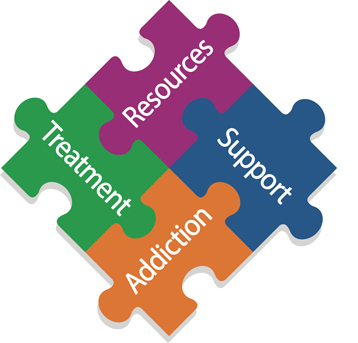Get effective alcohol addiction treatment designed to support recovery.
Secret Kind Of Addiction Treatment: Navigating Alcohol Addiction Healing With Evidence-Based Practices
In the world of alcoholism recovery, the assimilation of Cognitive-Behavioral Therapies (CBT) and Medication-Assisted Treatment (MAT) marks a critical stride towards efficacy and patient-centered care. CBT offers an organized path to reframe harmful thought patterns, while MAT gives a biochemical footing versus the physical adversities of withdrawal. When these evidence-based methods are supplemented with alternative methods, such as mindfulness and nutritional assistance, they form a robust framework for therapy. The trip through these modalities offers special challenges and outcomes, laying bare the inquiry of exactly how these treatments concretely converge to foster continual healing.

Understanding Cognitive-Behavioral Therapies in Alcoholism Recovery
As alcohol dependency recovery progresses, cognitive-behavioral treatments (CBT) have arised as a keystone in efficient treatment approaches. addiction recovery center. Treatment concentrates on recognizing these negative patterns and mentor people just how to challenge and replace them with more useful reasoning. The adaptable nature of CBT allows it to be tailored to the special demands of each individual, enhancing its efficiency in the realm of alcohol healing.

The Function of Medication-Assisted Therapy in Managing Withdrawal and Desires
Medication-assisted treatment (FLOOR COVERING) plays a critical function in the monitoring of withdrawal signs and desires in individuals recovering from alcoholism. Floor covering involves making use of FDA-approved medicines such as naltrexone, disulfiram, and acamprosate, which help decrease the physical and mental prompts to drink, promoting a smoother and much more convenient detoxification process. These medicines run by modifying mind chemistry to decrease the satisfying center drugs results of alcohol, maintain mood swings, and decrease physiological reliance. This medicinal strategy, when incorporated with counseling and behavioral therapies, improves the possibilities of long-lasting recuperation. Such assimilation sustains the retention in therapy programs and adds considerably to avoid regression, noting MAT as a foundation of efficient alcohol dependency therapy.

Incorporating All Natural Strategies With Typical Treatments for Comprehensive Treatment
While medication-assisted therapy provides a fundamental approach to alcohol recuperation, integrating all natural methods with typical therapies supplies a more thorough care version. By pain medication withdrawal relief integrating these varied methods, therapy programs can tailor interventions to specific needs, promoting buprenorphine treatment an extra sustainable healing. This incorporated strategy highlights the relevance of a diverse technique in the effective treatment of alcohol dependency.
Final Thought
In final thought, effective alcohol dependency healing leverages a mix of evidence-based methods. Cognitive-Behavioral Therapies reframe adverse thinking, while Medication-Assisted Treatment tackles the physical challenges of withdrawal and cravings.